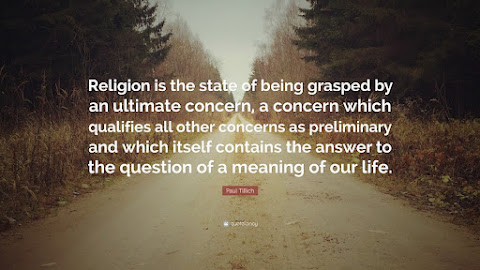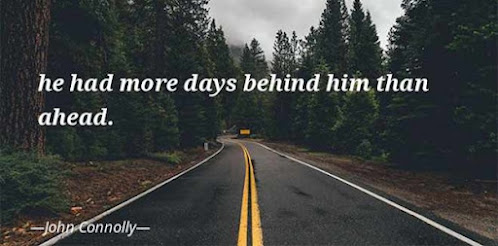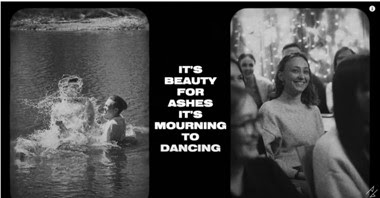“For where your treasure is, there your heart will be also.”
Today’s Gospel from
Luke comes at the end a long series of teachings by Jesus regarding how his
followers should live their lives after he is gone. Biblical scholars recognize
this teaching about one’s treasure as part of a wisdom tradition that would
have been fairly widely known in 1st CE Mediterranean culture. Indeed,
this saying regarding the relationship between one’s treasure and one’s heart is
found in Matthew’s Gospel as well as the Sayings Gospel of Thomas.
Learning to Trust
The words about where
one’s treasure is located come at the end of a long lecture on trusting in
G-d’s providence. In the verses just before this one in Luke, Jesus tells his
“little flock” that even the birds of the air and the flowers of the field are
provided for by a G-d who loves them. How much more is the G-d whose human
children bear his very divine image willing to do for them? And he tells them
that no one can add even a single hour to their lifespan by worrying about what
they will eat and drink and wear.
My guess is that a lot
of us never got that memo.
What Jesus is trying to get across to them is simple: Trust G-d. Don’t be afraid. It is G_d’s pleasure to give his children what they need.
What You Treasure is
Your Life’s Measure
But the words in today’s lesson about one’s treasure go beyond immediate concerns for food and drink and clothing, even the obsession with valued possessions. Luke’s Jesus is posing a deeper question than the dichotomy of whether one’s concerns are largely materialist or spiritual in nature. What Jesus is trying to get his listeners to consider is the very focus of their lives. The Westar scholars’ translation of this verse says it well:
“[W]hat you treasure
is your heart’s true measure.”
In the 20th
CE a theologian named Paul Tillich would take it one step further, restating the
question this way: What is your ultimate concern? Tillich asserted that
when we can identify our ultimate concern, whatever that may be, we will have
revealed the god we worship and the focus of the life we lead..
This piercing question comes
to me at a painful moment in my life. Many of you know I have just lost my dear
friend, Bill Fite, after a very brief battle with liver cancer. His passing was
peaceful but his unexpected departure leaves a gaping hole in the lives of
those of us who knew and loved him.
Writing Your Own
Obituary
When I taught the
material on death and dying in my Humanities courses at the University of
Central Florida, I sometimes used an exercise to get at that question that
almost always unsettled my students. I would ask them to write their own
obituaries. And I’d ask them to draw their tombstones including whatever
epitaphs and images they might contain. That always produced a lively
discussion when that assignment came due. Most of them had not had to wrestle
with many existentialist questions in their lives and most were not accustomed
to engaging in much self-reflection. The response I generally got from them was,
“I’d never thought about that before.”
But this is an important question. There is a reason Jesus poses this question to us. There is a reason its consideration is part of a wisdom tradition of which he is but one voice. And I am clear that it is never too late for any of us to consider it..
Part of what makes this question difficult is that it is impossible to fully know what the impact of our lives have had on others. In part we can never know the effects a single act of kindness may have had on someone in desperate need of that kindness and we never knew that. Similarly, it is hard to estimate the damage a single thoughtless word or angry response may have had on others who simply suffered in silence. And knowing how our thoughts, words and deeds may impact people long after we have departed this earth is simply beyond our capacities.
No Doubt, Abraham Had
to Wonder
I think Abraham may have understood a bit of that. In today’s Hebrew Scripture lesson he encounters G_d in a vision who tells him that his willingness to trust G-d had paid off. He would be the progenitor of a people whose descendants would be more numerous than the stars in the heavens. As it turns out, Abraham would become the progenitor of two peoples, the Hebrew people and the Muslims, and the patriarch of three religions, Judaism, Christianity and Islam.
But at the moment Abraham is hearing this, no doubt he had to wonder whether he’d had too much wine before bed that night. Abraham was elderly and had produced no children of his own with his wife, Sara. And yet, here is G_d assuring him that he will be the father of a nation. All he had to do was trust.
In my experience, that is always easier said than done. My guess is that was true for Abraham and it’s true for many of you as well.
What It All Comes Down
To….
As I wrestled with this
lesson this past week, something unexpected occurred to offer me some
inspiration. In our Sacred Time contemplative prayer group which meets each Tuesday
in our Mary Chapel, our leader Tiffany Lane often brings a reading with which
we begin our meditations. Two weeks ago, she brought in the lyrics to a song by
a popular Christian rock group. While that may sound like an odd starting place
for meditation, listen to what they had to say:
It all comes down to this
What you require of me
Love my neighbor as myself
And You above all things
Act justly, love mercy, walk humbly
With You, God
In all things, in all ways, walk humbly
With You, God
It all comes down to this
To be Your hands and feet
Good news to all the world
Oh the truth will set us free
Act justly, love mercy, walk humbly
With You, God
In all things, in all ways, walk humbly
With You, God
It's beauty for ashes
It's mourning to dancing
It's closer and closer
The Kingdom of heaven
And years from now we'll see
The fruit our hands have sown
Faith just like a seed
The only way it grows
Act justly, love mercy, walk humbly
With You, God
In all things, in all ways, walk humbly
With You, God
It’s a beautiful song. And if you think you’ve heard those words before, you have. They are right out of the book of the Prophet Micah who tells us what G-d requires of us: To do justice, to love kindness and to walk humbly with God.
Those words were what
adorned the cover of the service booklets for both my diaconal and priestly
ordinations. I take those words very seriously. And I pray that at the end of
my life, I can depart trusting that my life has in its own way reflected them
as best it could.
Questions Left For
Listeners to Answer
So there is much to take away from these lessons today. We are called to trust a G-d who is as close as the breath we breathe, knowing it is G-d’s pleasure to give us the things we need. We are called to reflect upon the focus of our lives. What is the treasure that reveals the measures of our hearts? And we are called to wrestle with that question of what our lives have meant. As the song writer asks us, what does it all come down to when we talk about our lives?
It was Jesus’ habit to pose hard questions to his listeners and then leave them to find their own answers to those questions trusting in their capacities to do just that. This morning, I will follow that pattern and so I leave you to ponder these lessons and wrestle with the questions they raise for all of us.
Grant to us, Lord, we pray, the spirit to think and do always those things that are right, that we, who cannot exist without you, may by you be enabled to live according to your will; through Jesus Christ our Lord, who lives and reigns with you and the Holy Spirit, one God, for ever and ever. Amen.
[Collect, Ninth Sunday
After Pentecost]
Harry Scott
Coverston
Orlando,
Florida
If the
unexamined life is not worth living, surely an unexamined belief system, be it
religious or political, is not worth holding. Most things worth considering do
not come in sound bites.
Those who
believe religion and politics aren't connected don't understand either. – Mahatma
Gandhi
For what
does G-d require of you but to do justice, and to love kindness, and to walk
humbly with your G-d? - Micah 6:8, Hebrew
Scriptures
Do not be
daunted by the enormity of the world's grief. Do justly, now. Love mercy, now.
Walk humbly now. You are not obligated to complete the work, but neither are
you free to abandon it. - Rabbi Rami Shapiro, Wisdom
of the Jewish Sages (1993)
© Harry
Coverston, 2022
++++++++++++++++++++++++++++++++++++++++++++++++++














No comments:
Post a Comment